Amazon had a deal yesterday for a $79 refurbished Kindle Paperwhite. That’s $40 less than a brand new one, and convincing enough that it’s now backordered for 3 to 5 weeks.
But I didn’t buy one. Even though I really want one. It was as good of a deal as I’m likely to see for a long time, but I hesitated, for all the reasons that have held me back this whole time, until it was too late. I don’t even know if I should be sad or relieved.
And I really wanted one. Kind of. A little bit. Maybe. Allow me to explain.
Why I semi-desperately want a Kindle
In many ways, digital book readers are better reading devices than regular books, and it’s not just the space-saving tininess of their svelte little library-in-your-pocket profile. They’re also easier to read. One-handed operation, faster page turns, non-curved reading surfaces, occasional built-in lighting, lighter weight, lack of app distraction, and font customization all combine to make quite a compelling case that digital books provide a better reading experience than paper. Just imagine trying to read a paper book while lying down on your side, for example. What a nuisance.
For all of these reasons, Kindle owners simply read more, with estimates claiming they consume anywhere from double to quadruple the number of books as those who read only print. Maybe they were reading voraciously already, which is why they bought a Kindle, but the advantages of digital reading, combined with the ease of getting exactly what you want immediately, are surely a significant part of the equation.
But most importantly, when I travel, I burn through books at a ridiculous rate, devouring them much faster than I can manage at home, often going at around one book per week. I feed myself as many books as I can while I’m gone, because I know I won’t be able to keep up the pace back home. On the last trip, I read a whole book in a single day (fun fact: It was Armistead Maupin’s The Night Listener).
It’s easy to see why; the internet is less of a ubiquitous distraction, even with readily-available free hostel Wi-Fi. Long bus rides, train trips, and flights carve out massive blocks of uninterrupted free time, occasionally preceded by an hour or two spent in the waiting area as well. Spending all day reading is sometimes the only option.
It’s true that tablets and smartphones can help pass the time with movies and games, but voracious readers aren’t likely to spend much time tapping away on them before opening up a good book. Besides, those horrific 36 hour bus rides will drain the batteries long before you arrive at your destination, in which case a good book is often the only reliable way to keep you from going completely insane.
There’s just one horribly insurmountable problem: Finding books.
Unless you’re a omnilingual language genius, you’ll probably be on the lookout for English-language bookstores, hostel book exchanges, or fellow reading buddies with whom you can trade a book or two. This all sounds great.
In reality, it’s a horrific nightmare. Depending on where you are, English-language bookstores and book exchanges might be completely nonexistent, and hostel roommates might not be readers. Or maybe they do have books, but they’re terrible. Argh!
Another semi-solution is to bring a single book that’s a thousand pages long, or carry several at the same time. I once met a guy carrying twelve. You’ll get spinal injuries from hauling them around all day, but at least you won’t get bored.
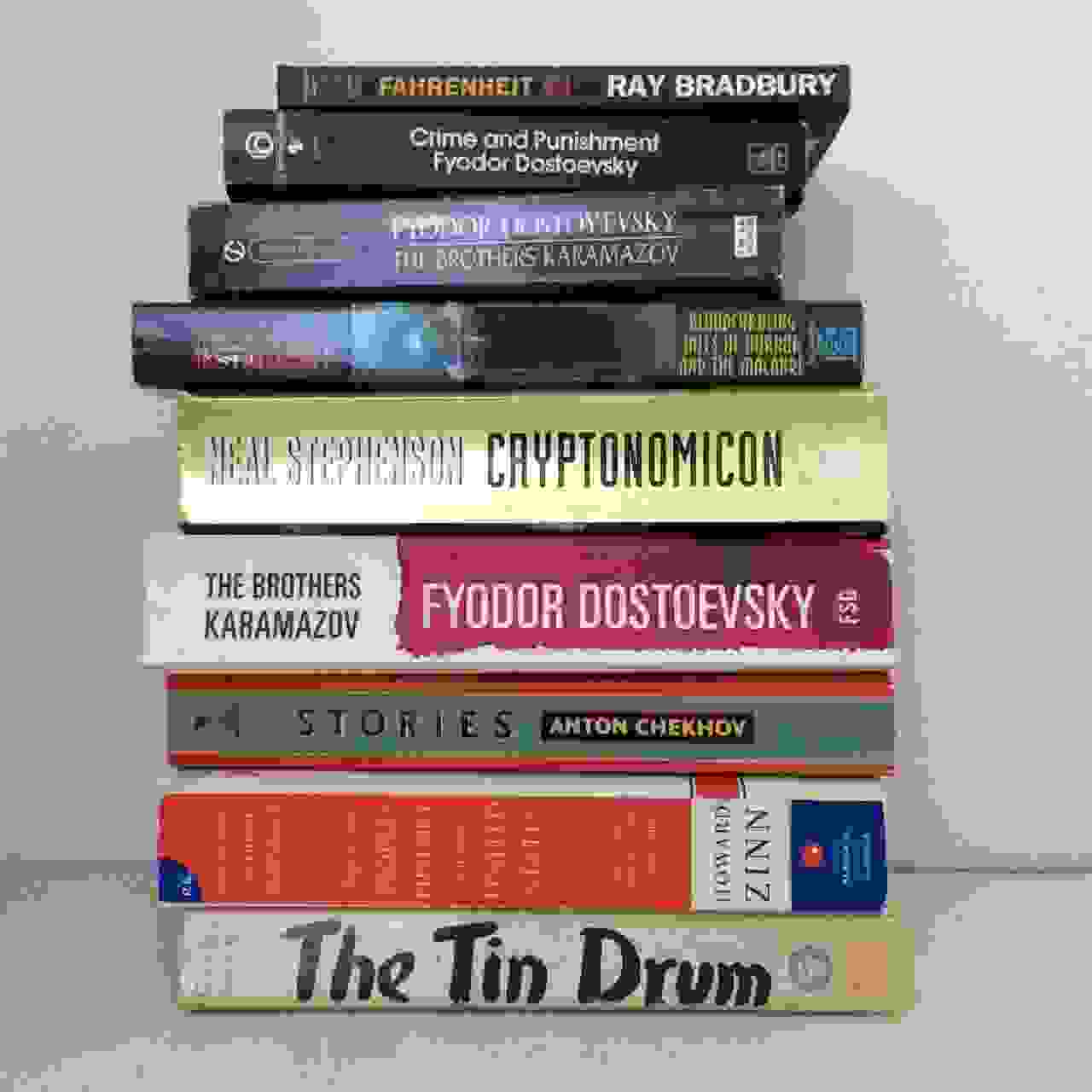
Damn. Wouldn’t it be great if there were a solution that provided convenient access to all sorts of great books, but won’t weigh you down or run out of batteries in a matter of hours? Yes, it totally would!
Sadly, the publishing industry seems to think otherwise.
Why I’ve held out on buying a Kindle for so long
For many reasons, digital book readers have failed to sufficiently kindle (ha!) my interest, though it has far more to do with the book industry in general, rather than the devices themselves. There’s nothing particularly wrong with a Kindle, and there’s lots to like. The two major problems, at the moment, are exclusively the fault of publishers:
Problem #1: Digital books are stupidly expensive
You know how much it costs to email someone a file? Nothing. And that’s essentially what it costs for a publisher to send you an ebook.
Sure, there are still plenty of costs associated with operating the business itself, and digital distribution networks aren’t free. But they’re significantly cheaper than print distribution, which is why publishers have been enjoying greater ebook profit margins, despite flat revenue. Ebooks are significantly cheaper to produce, store, and sell. So why aren’t they cheap to buy?
Consumers have frequently complained about the nonsensical irony of ebooks often costing more than print versions. Publishers are just gouging customers into paying higher prices for cheaper products, and consumers know it. Even if ebook prices were equal, or even slightly favorable, it would still be unfair, because they should be significantly cheaper.
Too bad they’re not.
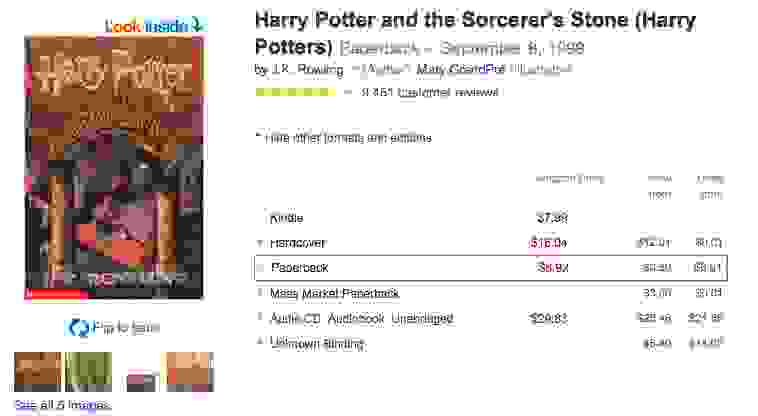
Yes, you can get a brand new copy of Harry Potter for 50 cents, while the Kindle price is 16 times higher. Even after factoring in shipping costs for the physical book (an additional $3.99), it’s still just a little over half the price of the Kindle edition. Plus you’ll get the book, which you can lend to friends. If digital books are supposed to compete with physical books, they should be cheaper than paper copies.
Making them cheaper, by the way, also makes them more profitable. Amazon has done a lot to communicate that books are very “price elastic,” meaning that when you sell the same book at a lower price, more people buy the book; that’s obvious enough, but, more importantly, so many more people buy the book that you make more money, even with lower prices.
In other words, they could drop the price in half, and they’d sell more than twice as many books. That’s already pretty great, but as an added bonus, authors would more than double their fan base. This is just a textbook (ha!) case of a win-win for everyone, and publishers are stupid for not jumping all over it.
You know what makes it even stupider? Used bookstores. Every time I look at ebook prices, I just go straight to the used bookstore down the street, which has just about every book I can possibly imagine, always at lower prices than any digital version (with the exception of old books whose copyright has expired, and thus are free). Why would I bother paying over $100 for a digital book reader and then pay $10 per ebook when I can get all the books I want for $7 each and then sell them back to the used bookstore and save even more?
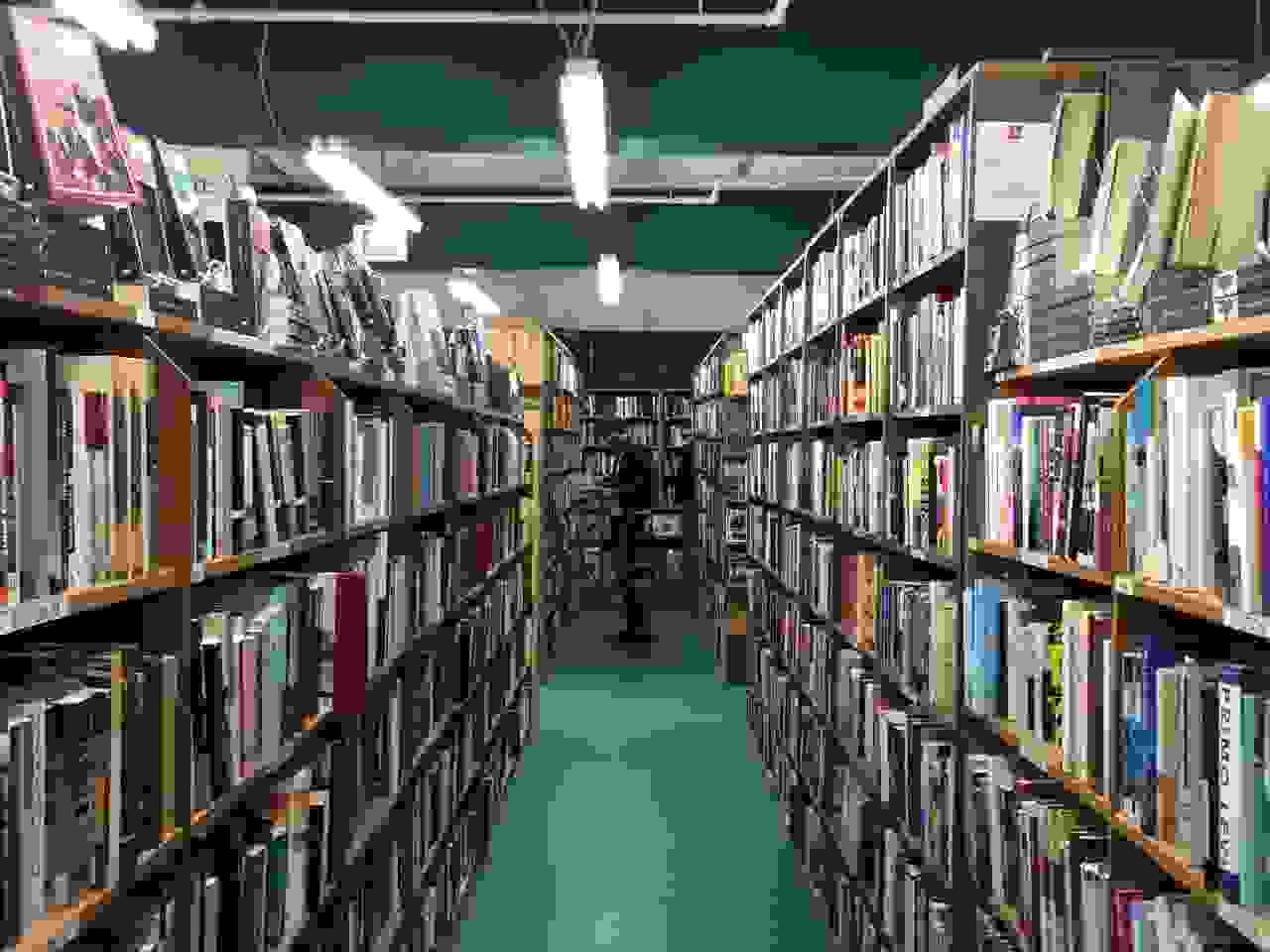
I just picked up a copy of Neal Stephenson’s Cryptonomicon for $2. It’s nearly 1,000 pages long, it’s a New York Times bestseller, and it was in the bargain bin for two dollars. The Kindle edition is $4.99. No wonder I love used bookstores so much.
Here’s another:
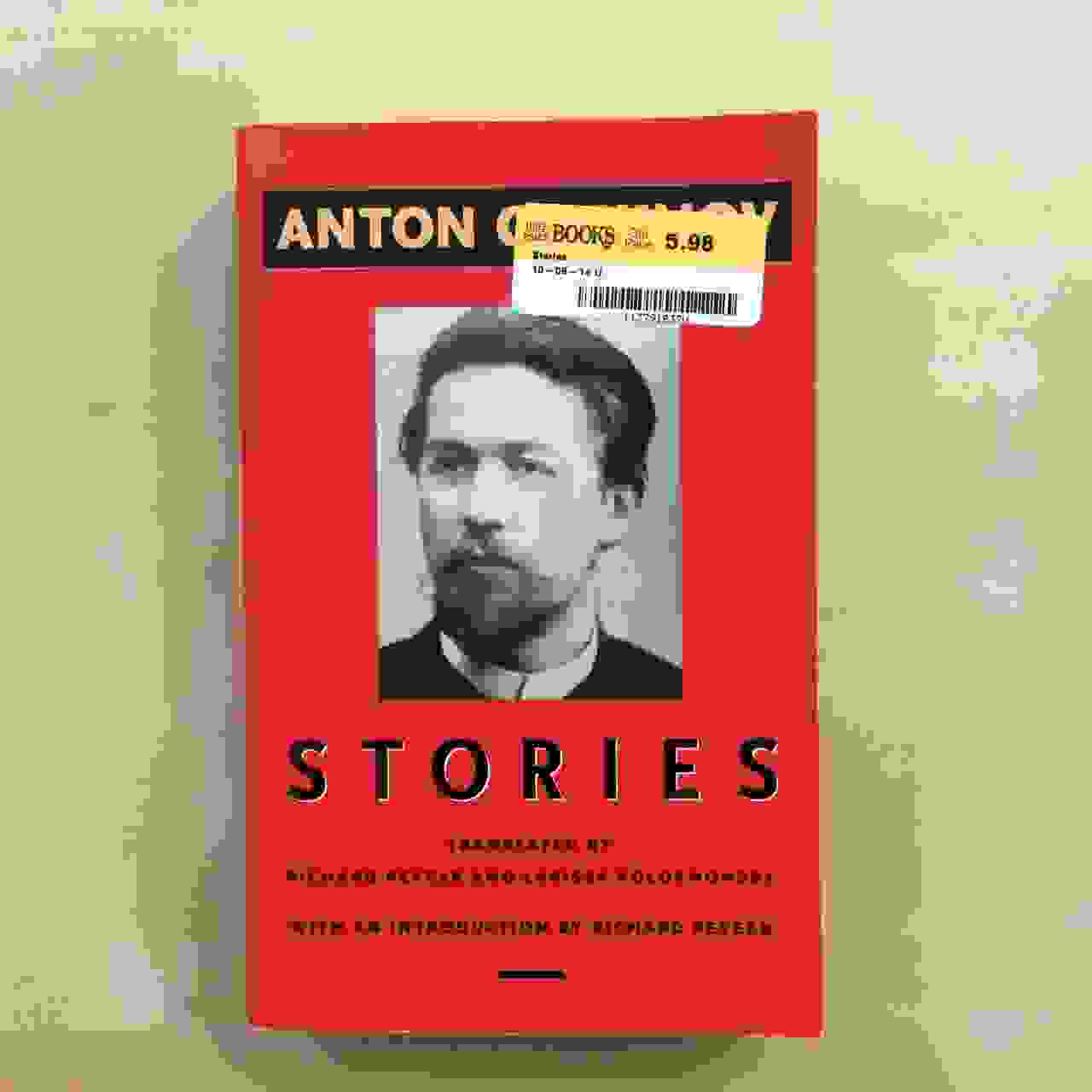
Ironically, it’s non-used books that make me feel used.
What an indisputably clear message it sends as to how stupid the publishing industry is for driving readers toward cheaper alternatives that make absolutely no money for the author or the publisher.
Seriously, what a stupid plan.
Problem #2: Digital books are stupidly unavailable
This predicament is changing rapidly, as it seems more and more books are available as digital versions all the time, but especially in the case of subscription services such as Kindle Unlimited and Oyster, which are clearly the future of digital book distribution, many of the books are simply not there.
In the case of Kindle Unlimited, a service which publishers are apparently trying to sabotage before it even has a chance, it’s especially problematic; most of the books available seem to be amateur erotica from the legions of moonlighting authors self-publishing on the site. If that’s what you love, well then, Kindle Unlimited is for you!
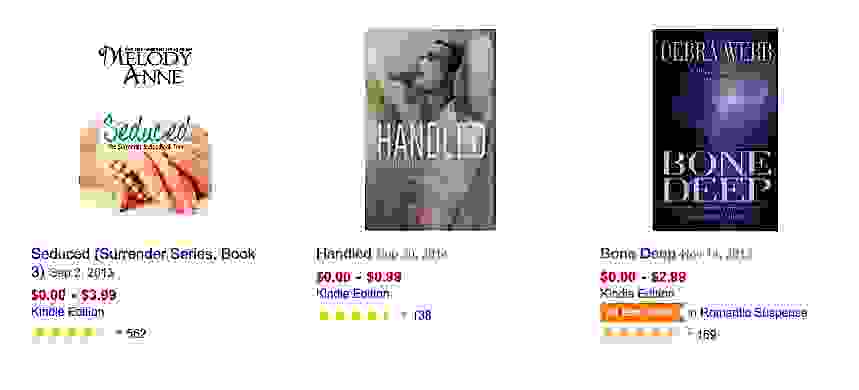
I’m exaggerating, but only slightly.
Oyster, at the moment, has 500,000 books. Compare that to the total number of books in existence (130,000,000), and you start to see the problem. Why would I pay $10 a month for “unlimited” books if I still have to shop elsewhere for Haruki Murakami? It’s certainly not Oyster’s fault, but it’s still a problem for readers looking for a reasonable solution.
It’s all just a huge mess.
My stupid Kindle solution
As someone who likes to travel, I’m getting a Kindle. It’s inevitable. I read too fast and run out of books, and get stuck with nothing to read, and I’m too scrawny to carry more than a few at a time. Getting a Kindle is the only way to resolve this problem. Reading on a phone or a tablet drains the battery, isn’t as comfortable, and hurts my eyes. Kindle it is.
Unfortunately, it’s expensive. Anywhere from $70 to $200 for the Kindle itself, and about $10 per book. At one book per week, that’s $40 a month, which is quadruple the price of subscription services, and $40 more than trading books with hostel buddies for free.
It’s certainly not a crippling expense, but it’s still an unjustified premium just for the luxury of using a Kindle, while publishers rake in higher profits by selling digital copies. But at least that way I’ll have something to read while I’m traveling, and I can save a little by reading older books with expired copyright that can be downloaded for free.
At home, I’ll just go to the used bookstore, buy the books cheaply, and return them back to the same store after I’m done, thus providing zero dollars in royalties to publishers and authors. And if you say “library,” I’ve tried. Finding what I want just doesn’t happen often enough to be worth my time (plus it smells weird), whereas a visit to the used bookstore has never left me disappointed.
This, clearly, is a stupid solution. It’s simultaneously less convenient and more expensive for me, and makes less money for authors and publishers. Nobody wins. Except the used bookstore, which I’m happy to support. But I’d prefer a reasonable alternative.
Which I can describe:
My ideal Kindle solution
In a perfect world, I’d have a Kindle, or some equivalent device, with a $10 per month subscription service that would include every book in the world, with a well-designed curation system that would feed me books I’d like as often as possible. I’d be overjoyed.
For those who have less frequent reading habits, subscription services don’t make much sense. They should be able to download digital books for $5 each. Quit fussing, publishers. We’ll just go to the used bookstore instead. It’s what we’ve been doing this whole time anyway. Also, the first 50 pages of every full-length novel should be free. With 130 million books out there in the world, sampling is a necessity.
Physical copies will still exist, whether new or used, because some people just like having a paper copy, and they’re more practical for people who read only occasionally, for whom a $100 dedicated book machine doesn’t make much sense, which is why I expect books will prove far more resilient than other physical media, such as music and movies, so there’s no reason to lament the impending death of the neighborhood bookstore.
Everyone would be happy…but it’s nowhere close to where we are now. Sigh!
I do, however, have an alternate proposition:
Why Amazon should give everyone in America a free Kindle
Oh yes.
Amazon has repeatedly pointed out that it doesn’t care if it makes no money selling underpriced devices, as long as it can go on to sell books and movies through them. Seems pretty straightforward, but let’s see how far we can push it.
Low-end Kindles cost about $80 to manufacture. I don’t know how the hell a black and white text machine is so damn expensive, but whatever.
So let’s say they hand out a free Kindle to every single person the United States, currently totaling somewhere around 300,000,000 people. Obviously it’s stupid to hand out free Kindles to newborn babies and so on, but half the point of this thought experiment is the audacity of it all. So let’s just say they blanket 100% of the population with a cool new free toy, including those who already have one. Grand total cost: $24 billion.
And remember how Kindle owners quadruple their book purchases? They’d go from the current American average of 5 books per year (I’m using the median, rather than the mean), all the way to 20.
That seems pretty optimistic, though. In many cases it’s not the Kindle that makes someone read more, but heavy reading habits that motivate someone to buy a Kindle. So let’s just arbitrarily cut that in half and call it 10. That’s not even a book a month, so I’d say that’s pretty reasonable as a nationwide average, thus meaning a Kindle-enhanced USA would read an average of 3 billion books per year.
As for how profitable it is for Amazon to sell those books, that’s much trickier, as public information regarding those numbers is seemingly nonexistent; publishers make somewhere around $4 to $5 in profit per ebook, but Amazon’s revenue share is lower, generally somewhere around 30%, meaning for a $10 ebook they’d get $3, and that’s before taking into account the cost of operations.
Digital files, of course, are immensely cheap to mass-produce, store, and ship, which is why I’m inclined to believe ebooks are quite profitable, but since Amazon’s profit margins are famously slim, let’s just say they make a single, solitary dollar per ebook in profit.
In other words, they could give me, and you, and everyone in the US a free Kindle, and they’d make back their investment in 8 years.
I don’t know why they haven’t already sent us one.
Obviously these estimates lack the precision I’d like, but it would certainly go a long way towards kickstarting the digital book market, and we’d probably all read a whole lot more. I’m also inclined to view the purported decline of American reading habits as exaggerated. We’d read more often if we could get the books we want, the way we want, at the price we want.
Disclaimers and whatnot
My point here isn’t to take sides with one company over another, nor weigh in on the ongoing battle between Amazon, publishers, bookstores, and authors (though I should mention that this site is an Amazon affiliate, meaning that when I send readers to Amazon by suggesting products they might like, I get a commission from the sale). I have mixed feelings about the Amazon’s place in the book market, but find it incomprehensibly stupid that publishers complain about Amazon’s alleged monopoly all the time, instead of just opening their own damn online bookstore and selling the books themselves. Seriously, who’s stopping them?
Besides, I don’t particularly care if I get my books from Amazon or elsewhere, or if I read them on a Kindle, or some equivalent device. I just want good books dammit. But I literally cannot find an ideal solution to my needs. I want the portability of digital books for more convenient travel, but digital books cost more than used copies, and subscription services often don’t have the right books. There’s simply nothing out there that’s properly addressing those issues.
Why? Why are publishers forcing a situation that works out for no one? Why are they fighting to keep prices higher than what I would find in the used bookstore, which provides them with zero royalties? Why are they fighting to keep digital books unavailable through subscription services? Why are they pretending to defend the interests of authors, while simultaneously refusing to share the increased royalties from higher ebook profit margins? For a variety of reasons, I don’t expect traditional publishers to exist much longer, and articles like this one make a solid case for why no one will mourn their demise.
I haven’t even addressed the problem of DRM-related non-portability, which disallows readers from reading ebooks on whichever device they choose. Much like any CD player should be able to play any CD, every digital book reader should be able to read any digital book. Non-portability only makes subscription services even more attractive, since they don’t force you into buying books that only work on one platform or another, which is yet another reason why buying into a digital ecosystem requires more tactical evaluation than it should.
Argh. What a mess.
Time to turn the page…
In the grand scheme of things, this isn’t a particularly huge problem. But what’s unfortunate is how people lament the decline of American reading habits, expecting the fall to be inevitable, with seemingly no hope in sight. I think the opposite is true.
Though people nowadays have far more entertainment options competing for their attention than they did 50 years ago, I expect the types of people who don’t bother reading today weren’t the types to do much reading back then, either. If you’re blissfully satisfied with Angry Birds, then War and Peace would have been a lost cause for you in any century.
Book lovers, on the other hand, will devour whatever they can get their hands on, and knowing that digital books have the potential to quadruple one’s reading habits, and that cutting the price of ebooks in half would more than double sales volume, there’s a pretty clear case for feeding book junkies with as much as you can throw at them, as cheaply as possible. If we’re all so worried about Americans reading fewer books, why not exploit the methods that encourage them to read more? Why not seize those opportunities with the same zeal with which readers would welcome them? Sigh.
I expect that sooner or later, all of these problems will be solved. Book lovers will have Netflix-like access to all the books they want, and they’ll marathon-read them the same way we all marathon-watched Breaking Bad. All day, every day, until we’re done.
We’re ready. It’s time to move on to the next…ahem…chapter of literary enthusiasm.
In the meantime, I’ll be at the used bookstore, enjoying every moment of it.
Minor update: I finally got one, and it’s exactly what I was expecting.




My family has moved almost exclusively to ebooks – after moving house and having to sell or transport box after box after box after box of paper books. It’s almost like the darn things are made out of wood! My wife “collects” libraries (they have reciprocal agreements with each other, so it’s easy to get 5 or 6 active library cards from different counties) so finding books isn’t too hard. Especially useful for kiddie bedtime stories: what never had an independent physical form won’t fall behind the bed and rack up overdue fines. iPad, iPhone, Kindle Fire, Kindle Keyboard… They all work well for us in different situations.
A local office supply store recently had the low-end Kindle model for $33 after sales tax and rebate. We immediately bought 4 and gave 3 away as Christmas gifts. And patiently showed the recipients how to get books from their local libraries for free via overdrive.
Readers gotta read.
To feed your kindle, or other ebook reader on a budget -check out bookbub.com for free books and offers, even on current best sellers. You get to choose your preferences.
No affiliation, I’ve just found it very useful :o)
Funny how your comment showed up as I was getting books from bookhub.com today. And another good site for free books is ebookshabit.com. My Kindle is filled with free reading material that is interesting and quite good. I’ll never run out of free or low cost books to read. I probably get 5-10 free books a day, plus I do take advantage of Amazon’s $9.99/month Kindle Unlimited program. I’m retired, so traveling and reading are my hobbies. Preferably both at the same time.
bookhub.com and bookbub.com are different (it wasn’t a typo :o)
Now I’ll check that one as well… thanks!
It WAS a typo. I actually meant bookBUB.com. LOL Now I’ll check out bookHUB.com, as well.
There is also something called the Project Gutenberg: that offers free books to read as well.
I have never used Kindle, but I have been thinking of getting one. I know that my local library offers some free ebook downloads through their website, however I don’t know if they will work with Kindle or other ebook readers like the Nook? Also, my local library has a scarce availability of the actual ebooks that I want, but its good to check out your local library’s catalog to see if they may have what you are looking for.
Checking out ebooks from the library is such a garbage-filled experience that I just don’t bother anymore. I know there are plenty of people out there who do it, and they make it work (generally they have to reserve books several months in advance, or just randomly pick them without caring if they’re going to be good or not), but I hate it. A book costs maybe $10, and if I read a couple per month, it’s not going to kill me, and I’d rather read great books that I like instead of just whatever’s available at the time. Sometimes that works out, and sometimes it’s terrible.
Dude. Just check out kindle books from the library. Wherever your hometown and your parents hometown and your siblings hometown is, sign up for a digital library card with your/their home address info and you have a wide selection of books to choose from. Obviously the selection is somewhat limited, but its FREE. I recently went through a list of the next 20 books I want to read on the digital catalog for my library district (which, admittedly, is in a large city) and found over 3/4 of the books in the digital catalog. They either had the Kindle edition or PDF or another ebook format that I could just download and convert to Kindle version. I wanted a new book yesterday – I looked it up, checked it out, and it was downloaded to my Kindle right away. The one I wanted before that I had to wait 1 week, but then I received an email with the download link and was able to download it right away.
Also, Project Gutenburg could be a good option for you. Seems like you like a lot of classic lit.
And of course, Kindle Unlimited which is like $10 a month.
Yeah, I started getting library books too, although they always seem to be out of a lot of the books I’d like to read…but then again I get picky. I know what it’s like reading a book so good you can’t put it down, and I have a hard time reading mediocre books that don’t do that for me.
I absolutely love Kindle Unlimited. Was just buying and borrowing mass quantities of free books to the cloud, in preparation for a long trip. Now that I have an Android based smartphone, I don’t even have to carry an actual “kindle”. It has enough memory that I downloaded 20 books to read, in case I can’t get a signal. The smartphone is the one thing I wished I’d had on previous trips, and now I do!
When I was preparing to move to Costa Rica in 2012–2013, I had a big debate with myself about the small library I had accumulated since the 1960’s. Amazon and my Kindle Fire won out, with has been a mistake. First, I had many, many Spanish language learning books I would use over and over by making copies of grammar exercises on Friday afternoon on my office copier to work on when bored over the weekend. I never understood how valuable that was a part of my life until I didn’t have it available. So here in Costa Rica I have lost a very valuable portion of my continuing learning process. I have bought some place copies on my most favorite and few new. The major obstacles that it is both tedious and sometime to next impossible to replicate my Friday afternoon copying session. My beef is simply and I can’t why Amazon and their Kindle haven’t figured this out as a matter of capitalism “smarts?” I would like these texts both in two formats priced so I could have in the fashion I want to use them. Kindle for reading and PDF for printing out those pages I want to study away from my Kindle. I was a legal research by profession so I am very use to copy data from website with “cut and paste” for use in documents I was crafting for different issue. I always followed the standard Blue endorsement for copyright acknowledgement. For a smart company Amazon is missing a what I think is a huge market. Do people want novels, romance novels and large tomes of history in PDF, I don’t think so. But I would guess PDF for textbooks and similar books written to support those studies in this digital age, I would say absolutely. The sad note of this whole issue is in Costa Rica there are many great copy centers. And for maybe for less then $250 I could added my small library on the pallet of of my household goods here. As my Mother would have said to me if she was still alive, “Tommy was dumb!” Yes Mom, I can still here it as infrequent as you used it with your three sons.
I think you’re right when it comes to textbooks. Flipping through to find a particular page isn’t so fun on a Kindle either. They’re really just dedicated fiction reading machines, as far as I’m concerned.
Exactly, also Kindle is not user friendly to those of us that live outside the US either.
There is a way to print sections of ebooks using your Kindle, or the Kindle App on an Android phone. I use this method a lot, especially to create a cheat sheet from a tour guide when visiting new places, or to “cut” a favorite recipe out of a recipe book. It involves selecting the section that you are interested in, copying it to the clipboard, then sending it to yourself via e-mail using the built-in browser function in your Kindle. That way you can print it at a library from your email account or by using Bluetooth at a copy center. Some people just open the book page on their Kindle and use the copy machine’s zoom function to make it larger. That is reported to work well, too.
Now that I have a Smartphone with a large screen, I just use the Kindle App on my Android OS so everything is seamless. I am also able to easily convert Kindle books to PDF on my laptop if I wish, but that is a more involved topic. The copy-to-clipboard function works very well for me.
That’s not a bad idea. I might have to borrow that.